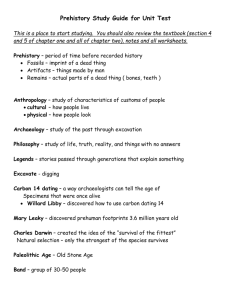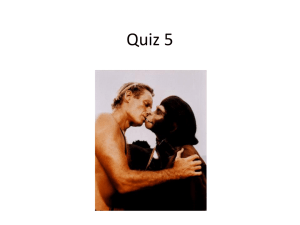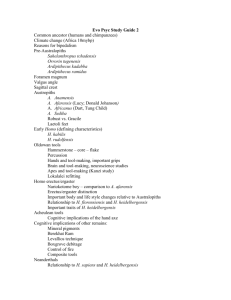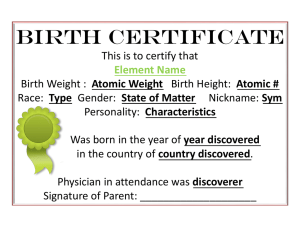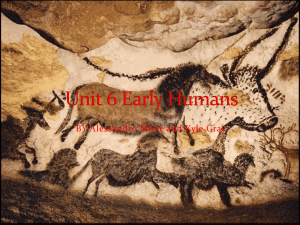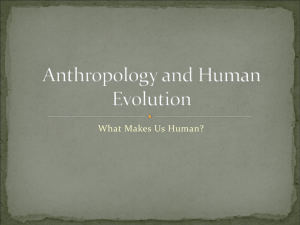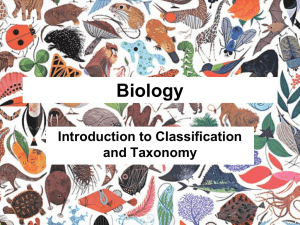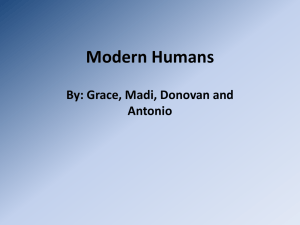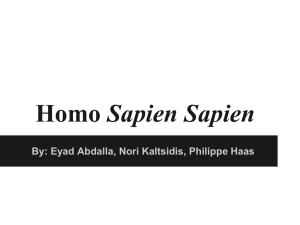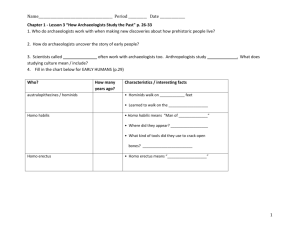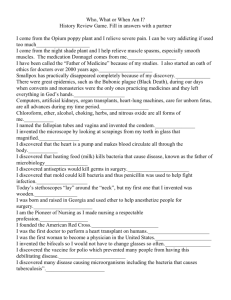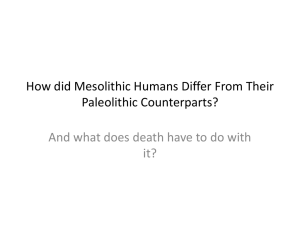Key Characteristics of Five Hominids
advertisement
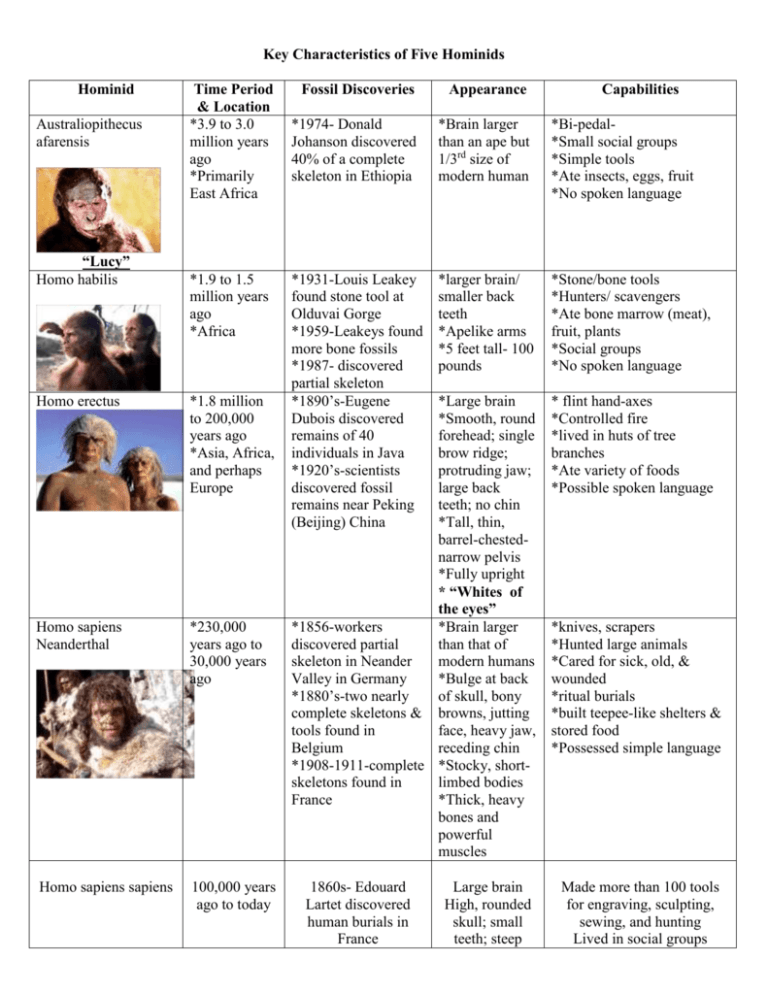
Key Characteristics of Five Hominids Hominid Australiopithecus afarensis “Lucy” Homo habilis Time Period & Location *3.9 to 3.0 million years ago *Primarily East Africa *1.9 to 1.5 million years ago *Africa Homo erectus *1.8 million to 200,000 years ago *Asia, Africa, and perhaps Europe Homo sapiens Neanderthal *230,000 years ago to 30,000 years ago Homo sapiens sapiens 100,000 years ago to today Fossil Discoveries Appearance *1974- Donald Johanson discovered 40% of a complete skeleton in Ethiopia *Brain larger than an ape but 1/3rd size of modern human *Bi-pedal*Small social groups *Simple tools *Ate insects, eggs, fruit *No spoken language *1931-Louis Leakey found stone tool at Olduvai Gorge *1959-Leakeys found more bone fossils *1987- discovered partial skeleton *1890’s-Eugene Dubois discovered remains of 40 individuals in Java *1920’s-scientists discovered fossil remains near Peking (Beijing) China *larger brain/ smaller back teeth *Apelike arms *5 feet tall- 100 pounds *Stone/bone tools *Hunters/ scavengers *Ate bone marrow (meat), fruit, plants *Social groups *No spoken language *Large brain *Smooth, round forehead; single brow ridge; protruding jaw; large back teeth; no chin *Tall, thin, barrel-chestednarrow pelvis *Fully upright * “Whites of the eyes” *1856-workers *Brain larger discovered partial than that of skeleton in Neander modern humans Valley in Germany *Bulge at back *1880’s-two nearly of skull, bony complete skeletons & browns, jutting tools found in face, heavy jaw, Belgium receding chin *1908-1911-complete *Stocky, shortskeletons found in limbed bodies France *Thick, heavy bones and powerful muscles * flint hand-axes *Controlled fire *lived in huts of tree branches *Ate variety of foods *Possible spoken language 1860s- Edouard Lartet discovered human burials in France Large brain High, rounded skull; small teeth; steep Capabilities *knives, scrapers *Hunted large animals *Cared for sick, old, & wounded *ritual burials *built teepee-like shelters & stored food *Possessed simple language Made more than 100 tools for engraving, sculpting, sewing, and hunting Lived in social groups Fossil bones named Cro-Magnon Thousands of other fossils found throughout the world What were the agents of change? Climate/Tectonic Shifts Diet Use of tools Language Control of Fire forehead; receded brow ridge; prominent chin Relatively slender bones Semi-permanent huts of stone, wood, animal hides Created art-carvings and cave paintings Advanced spoken language
